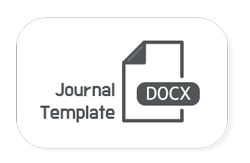The Exasperating Economic Misery in Nigeria: Can we Depend on Monetary Policy?
DOI:
https://doi.org/10.53935/26415313.v5i2.230Keywords:
Unemployment, Inflation, Monetary policy rate, Economic development, Misery index, ARDL.Abstract
The core objective of this study was to detect the influence of monetary policy on economic misery in Nigeria from 1991 to 2021. The study employed the Granger causality test, autoregressive lag (ARDL) bounds test for cointegration, the fully modified ordinary least squares, impulse response function, and the variance decomposition in analyzing the data. From the Granger causality test, it was realized that a one-way causality flows from the monetary policy rate to economic growth. The ARDL bounds test for cointegration validated the existence of a long-run relationship between monetary policy rate and economic misery in Nigeria. From the long-run estimates, it was observed that the effect of monetary policy rate on economic misery is positive and significant. Furthermore, it was realized that the effect of monetary policy rate on inflation has been positive and significant, while the effect on unemployment has been negative but insignificant. The impulse response function portrayed that economic misery responded positively to shocks in monetary policy in the short-run but such response is being decomposed in the long-run. These findings therefore justify the Central Bank of Nigeria’s stance of increasing the monetary policy rate to tackle inflation, which will hitherto reduce the economic misery in Nigeria.
Downloads
Downloads
Published
How to Cite
Issue
Section
License

This work is licensed under a Creative Commons Attribution-NonCommercial 4.0 International License.












